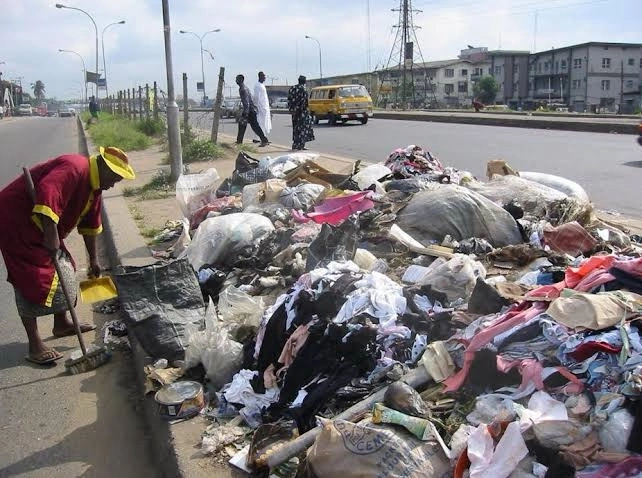
Fixing Nigeria's waste problem needs smart planning and action. This means spending money on things like better trash trucks and recycling plants, making sure everyone follows rules about waste, and finding new ways to deal with trash.
Good day everyone welcome back, today we will be talking about a hidden problem, one so hidden in plain sight, you can’t even tell until it becomes overwhelming “Nigeria’s waste problem”, the real enemy.

Nigeria’s growing piles of waste are more than an eyesore; they’re impacting lives. Imagine families near overflowing dumps, breathing toxic air and facing health risks daily. Open burning pollutes our neighborhoods, making people sick. Blocked drains cause floods, like we often see here in Port Harcourt, disrupting lives and livelihoods.
The sheer volume of waste generated across Nigeria presents more than just an environmental challenge; it’s a growing crisis deeply impacting the lives and well-being of its citizens. Rapid urbanization and population growth have amplified the strain on already inadequate waste management systems, creating a situation where the consequences are felt in tangible and often distressing ways.
Imagine the daily reality for communities living near overflowing dumpsites. The acrid smell permeates the air, a constant reminder of the health risks lurking nearby. Children play amidst the filth, vulnerable to infections and diseases carried by pests and contaminated water. For families relying on these environments for informal scavenging, the pursuit of livelihood comes at a steep price – exposure to hazardous materials and chronic health issues.

Beyond the immediate human impact, the economic implications are significant. Untapped resources in the form of recyclable materials are lost, and the potential for job creation in a thriving waste management sector remains largely unrealized. The blocked drainages leading to devastating floods not only displace families and damage property but also disrupt livelihoods and hinder economic activity, as vividly experienced in places like our own Port Harcourt.
Fixing Nigeria’s waste problem needs smart planning and action. This means spending money on things like better trash trucks and recycling plants, making sure everyone follows rules about waste, and finding new ways to deal with trash.
But really, this is about people. Everyone deserves to live in a clean place and be healthy. We all need to work together to handle our trash better so our communities can be nice places to live now and in the future. Instead of just seeing trash as something dirty, we should see if we can reuse some of it to help everyone.